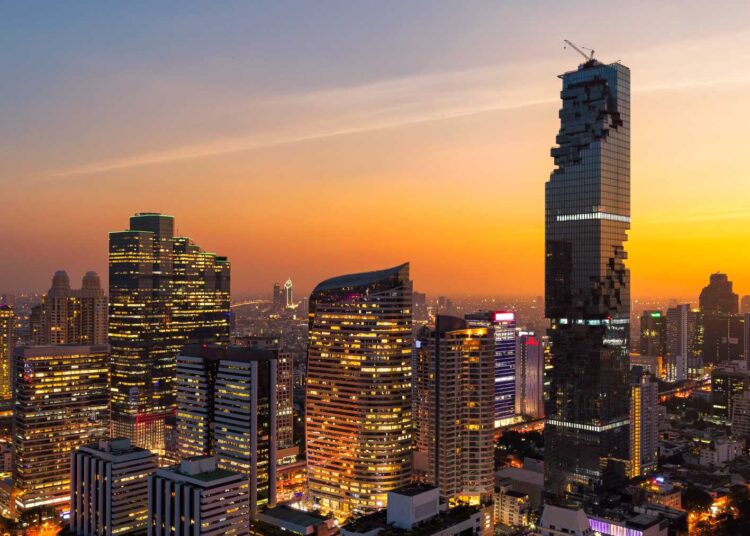
In today’s globalized economy, logistics play a crucial role in the success of export manufacturing operations. Bangkok, with its robust logistics network and strategic location, has emerged as a key destination for export manufacturing factories. This blog post delves into how Bangkok-based export manufacturing factories can optimize their logistics processes to enhance efficiency, reduce costs, and achieve global success.
- Leveraging Bangkok’s Logistics-Friendly Location
One of the primary reasons Bangkok is an ideal location for export manufacturing factories is its central positioning in Southeast Asia. The city’s strategic location allows for efficient access to international markets, both within the region and beyond. Factories in Bangkok can benefit from the city’s close proximity to important seaports, such as Laem Chabang, which handles a substantial share of Thailand’s export shipments. The port’s modern facilities enable fast customs clearance and cargo handling, allowing goods to be shipped out quickly.
Furthermore, with Bangkok located near major industrial areas, raw materials can be transported to factories promptly, and finished products can reach distribution centers without significant delays. This strategic advantage is key to optimizing logistics for a Bangkok-based export manufacturing factory.
- Utilizing Advanced Warehouse and Distribution Solutions
Bangkok-based export manufacturing factories often employ advanced warehouse management systems (WMS) to streamline logistics. These systems provide real-time tracking of inventory levels, allowing for accurate order fulfillment and reduced storage costs. Companies can also utilize distribution centers in and around Bangkok to expedite the delivery of products to various markets.
Third-party logistics (3PL) providers play a vital role in the logistics ecosystem of Bangkok. By partnering with experienced 3PL companies, manufacturers can manage warehousing, transportation, and distribution more efficiently. This outsourcing allows businesses to focus on core manufacturing activities while ensuring that logistics are handled by professionals with in-depth knowledge of the Bangkok market.
- Investing in Efficient Transportation Networks
Transportation is a key aspect of logistics for export manufacturing factories. In Bangkok, businesses benefit from an extensive transportation network, including highways, railways, and airports. The well-developed road infrastructure facilitates the easy movement of goods between factories and ports, while the ongoing expansion of the railway system promises to further reduce transportation costs.
For high-value or time-sensitive products, air freight is an important mode of transportation. Bangkok’s Suvarnabhumi Airport is one of the leading air cargo hubs in Asia, providing direct access to international markets. The airport’s comprehensive freight services and facilities enable manufacturers to optimize logistics and meet customer demands for faster delivery times.
- Embracing Technology for Smart Logistics Solutions
The adoption of cutting-edge technology is transforming logistics operations in Bangkok-based export manufacturing factories. The use of Internet of Things (IoT) devices, data analytics, and artificial intelligence (AI) allows companies to optimize supply chain processes, monitor shipments in real-time, and predict potential disruptions. For example, AI-driven algorithms can help forecast demand more accurately, enabling factories to adjust production schedules and manage inventory levels more effectively.
Blockchain technology is also gaining traction in logistics, as it provides a secure and transparent method for tracking shipments and verifying documentation. This technology enhances trust among stakeholders, from manufacturers to customs officials, reducing the risk of delays or fraud in the export process.
- Navigating Logistics Challenges with Flexibility
While Bangkok’s logistics infrastructure is highly developed, challenges such as traffic congestion and regulatory complexities can still arise. Bangkok-based export manufacturing factories can overcome these obstacles by adopting flexible logistics strategies. For instance, using multiple modes of transportation, such as combining road, rail, and air freight, can help minimize delays and costs.
Additionally, maintaining strong relationships with logistics partners and regulatory authorities ensures smooth coordination during the export process. Companies should also stay updated on any changes in customs regulations or trade policies to avoid potential disruptions.
Conclusion
Logistics are a vital component of the success of any export manufacturing factory. For factories based in Bangkok, the city’s strategic location, advanced infrastructure, and technological innovations offer significant advantages in optimizing logistics operations. By leveraging these factors, businesses can streamline their logistics processes, enhance efficiency, and achieve global competitiveness. For companies aiming to establish or expand their export manufacturing operations, Bangkok offers a prime location to optimize logistics and drive growth.